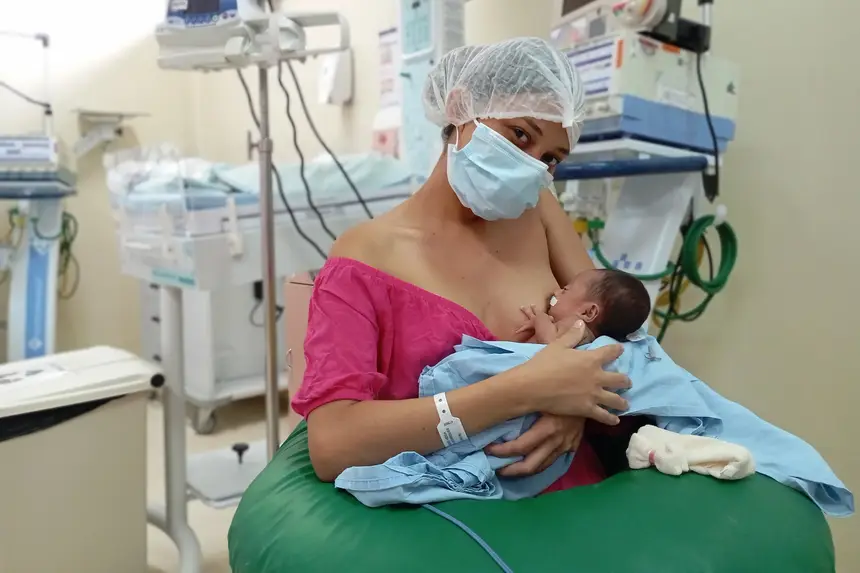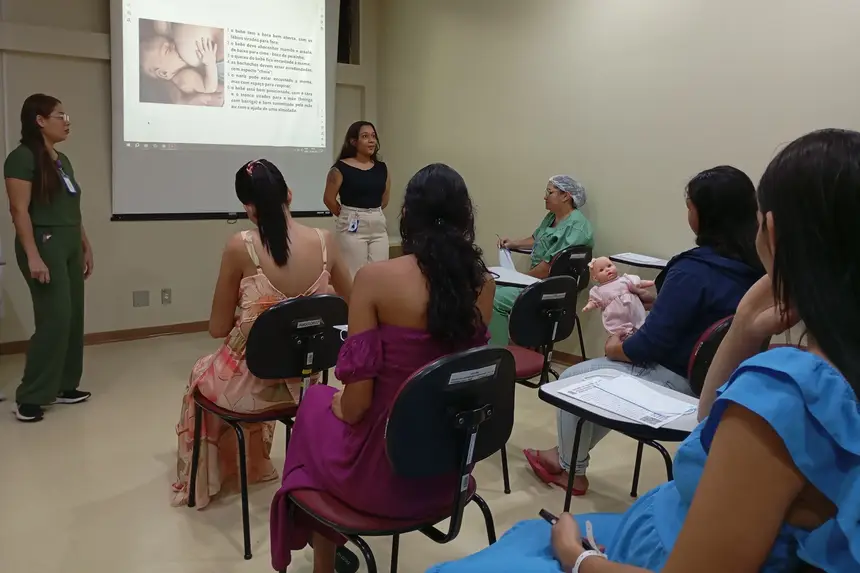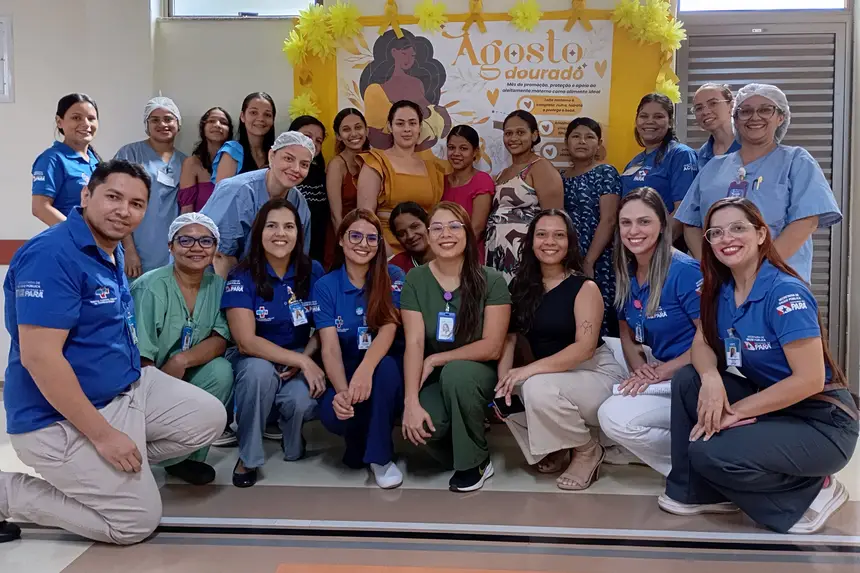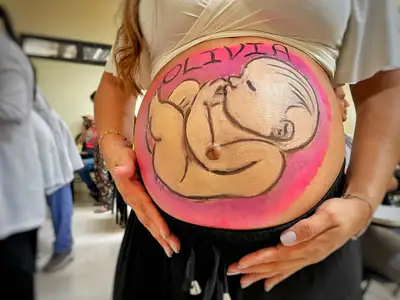More valuable than gold: Transamazon Hospital highlights the importance of breastfeeding
Mother's milk is the only food recommended for babies up to six months of age
At the Public Regional Hospital of Transamazon (HRPT), in Altamira, southwest Pará, the Golden August campaign continues to focus on the most valuable food for newborns. Breast milk is so powerful in nourishing the baby that health authorities call it 'the most valuable gold'. The explanation lies in its composition. Rich in proteins, the milk also carries indispensable antibodies for the body's defense.
The topic has been the focus of a series of lectures held by HRPT this month. One of them, last Thursday, the 21st, brought together health professionals, collaborators from other sectors, and patients who had just given birth. Nicoly Barros is the mother of a newborn admitted to the Neonatal Intensive Care Unit (NICU). The young woman says, "I didn't know that milk was so powerful for the baby. Here at the hospital, I was able to understand the importance of breastfeeding, which nourishes the child and helps strengthen the entire immune system."
"Each year we are extending this network of care with incentives and information so that we can engage and achieve the best results," indicates the coordinator of the Neonatal ICU, Cleiton Araújo. The nurse points out that "breastfeeding is a national and international program. There are several strategies that are integrated into the health system. It is a goal of the Ministry of Health for all institutions."
Baby's first 'vaccine' - Even before receiving vaccines against a series of pathologies, the newborn has in the mother's milk the most effective immunizer for those who have just been born. "The Brazilian Society of Pediatrics brings various articles that classify breast milk as the baby's first vaccine; it contains various nutrients that are essential for development from the very beginning. For this, the mother needs to ensure that she has a good diet so that it is passed on to the baby," explains Aline Menezes, a specialist in child nutrition and a member of the multidisciplinary team at the Regional Hospital of Transamazon.
Unfortunately, the professional adds, many falsehoods hinder the understanding of how important breastfeeding is. A common fake news spread on social media claims that mother's milk alone is weak and unable to feed the child, necessitating porridge, soups, and fruits. "There is no weak milk! Contrary to what many report, there are phases of milk, which are three. Mother's milk is capable of meeting all the baby's needs up to six months," warns Aline Menezes. Before six months, not even water should be added to the infant's diet.
And when the baby cannot receive the mother's milk?
Joelma Rodrigues, 28, has always dreamed of having children and being able to share one of the greatest affections: breastfeeding. In the case of her first child, everything went well, and the housewife managed to feed the child solely with milk as medicine says it should be. But when Antonelle arrived, the scenario was different because the girl, now 50 days old, had pneumonia and meningitis, in addition to developing a serious allergy to breast milk. "Every time she drank, her belly would swell, and she felt a lot of pain. There was no way to give her the milk," recalls the mother, who only learned of the problem when Antonelle was transferred to the Transamazon Hospital.
Cases like Antonelle's affect 2% to 5% of children in Brazil and primarily impact premature infants. The allergy is not to breast milk itself but to proteins that can also be found in animal milk, the one we consume at breakfast and is used as an ingredient in cheeses and yogurt, for example. As the baby does not adapt to these proteins, the body reacts with a series of signs and symptoms, including diarrhea, colic, and swelling. Without proper treatment, the patient can progress to extremely severe conditions and even lose their life.
When the baby cannot be fed with the mother's milk, professionals administer a special infant formula prepared specifically for this type of patient. The formula follows the international standards of the World Health Organization (WHO), unlike dairy compounds sold in pharmacies that are not recommended for babies under 12 months. The formula recommended by WHO prevents malnutrition and motor and cognitive malformation. The coordinator of the Neonatal ICU, nurse Cleiton Araújo, explains that the switch from milk should only occur when guided and monitored by multidisciplinary teams.
"The Regional Hospital has nurses, doctors, psychologists, social workers, speech therapists, physiotherapists, and nutritionists. From the moment of admission, attention begins" to ensure that mother and baby are assisted with specific strategies on how to feed the baby if the newborn is not able to receive breast milk.
Text: Rômulo D’Castro (HRPT)













